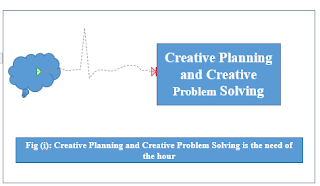Brain, Language and Communication - Part II
How do people get our ideas exactly the way we want them to? Imagine that someone has mistaken your smile to be your approval for something you don't like. It can be a comic situation and sometimes a difficult one too. Let me share a real-life incident that happened in my life. I have a friend from Maharashtra and her father has always been very kind to me. He has wished the best for me and has advised me like how a father would advise his own daughter. I have had to travel to Maharashtra for some work and whenever I was there I made it a point to meet my friend and her father. My friend's father was fond of Jalebis (An Indian Sweet dish). And once when I was there he asked me "would you want to have some Jalebis?". I at that time did not have a sweet tooth as I have now. Jalebis are quite popular and are liked by many. I was sitting with my friend and was having a casual chat when my friend's father offered me Jalebis. I knew that Jalebis were his favorite and also because he had been very good to me, I couldn't say 'No". And I couldn't say "Yes" either as I honestly did not like Jalebis at that time. I just smiled thinking that my smile would suffice and he probably would not ask me to have his most-liked Jalebis. I was just trying to be polite and I did not want to offend him.
Sometimes people do not understand your
gestures. And these gestures which are supposed to save you from embarrassment
backfire and put you in a trying situation. He immediately ordered a lot of
Jalebis and that was it. He first served me five Jalebis on the plate and you
should have seen me. I was cursing myself for that smile I gave. Instead, I
could have confessed that I don't like Jalebis. Now I thought of a strategy…
"Let me eat them fast so that the taste doesn't linger in my mouth for
long". Eating them slowly would have been difficult. Unfortunately, this
master plan did not work and this time he kept five more Jalebis on my plate. I
looked at them with a shock but with an expressionless face, obviously, I did
not want to hurt him, and I blurted out "oh please, not so many", and
he immediately replied, "have more, I have ordered enough and don't worry
we all can have". And I gave up. I stared at those Jalebis and I ate them
one by one. My friend sitting next to me was enjoying every bit of all that was
happening.
This is a classic example of how everything can
go wrong when you try to manage a situation with gestures and do not use words.
Signals, expressions, indications, etc. have helped us but if you can speak
then there is no harm. Words and sentences make the point more clear and avoid
such confusion.
So let us look at how others' brains are able
to perceive our ideas better when we speak. We all have stories to tell and
when we speak the soundwaves enable the brain of the listener to immediately
synchronize with our brain patterns. And when we are busy listening to
someone's stories, our brains get aligned to the speaker's brain. The speaker's
brain and the listener's brain get locked. Both now have similar brain
patterns, this makes the speaker and the listener understand each other quite
well. During this process, the brain responses of the speaker and the listener become
very similar. And if there are a number of listeners with all their brains
synced with the speaker's brain then imagine the impact this can have. No
wonder mass communication and public speaking have been so effective. Read more
about brain coupling by clicking the reference link This is your brain on communication 2017 Uri Hasson.
Further research on linking brain activity and
enabling direct message transmission from one brain to the other brain is
happening. Can brain sync solve a major problem of misunderstanding between
people? Can the brains of such people concur so that their relationship
problems due to differences of opinion could be solved? Think about it….
Meanwhile, it is time for me to leave. Will
meet you with another thought-provoking issue. You take good care of yourself
till then. BBye


Comments
Post a Comment